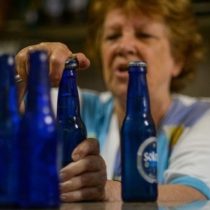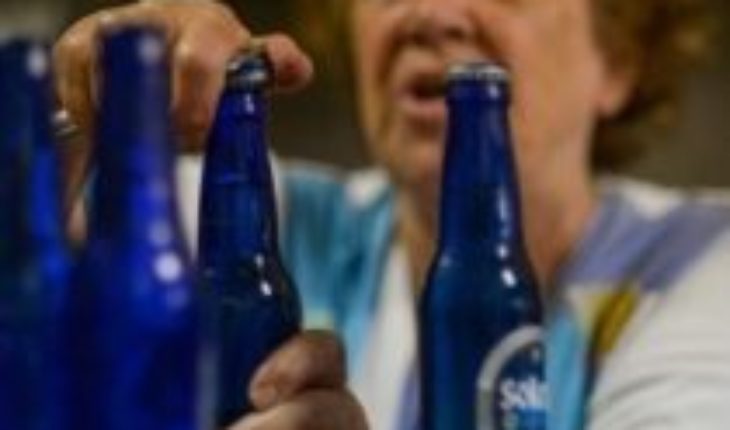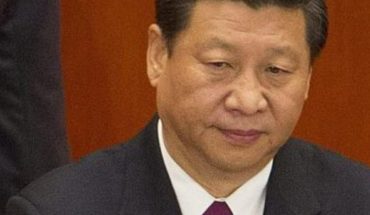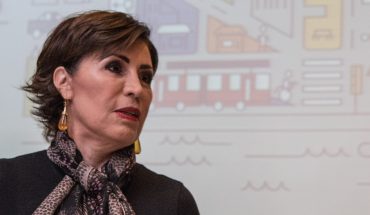
It’s a fight that Venezuelans are used to and many fear.
The recent liberalization of prices and exchange rates by President Nicolás Maduro’s government had given oxygen to the private business sector and was seen as one of the keys to an end to the problem of the country’s supply for years.
Although at a prohibitive price for many Venezuelans, the products, absent in 2016, 2017 and 2018, returned to supermarkets.
The truce, however, seems to be over.
On April 24, Executive Vice President Delcy Rodriguez announced that the government would apply a “supervised sale” mechanism to the products of three of the country’s leading food companies, which she accused of becoming “speculative benchmarks (prices).”
In the midst of the coronavirus crisis, the official said that it was a special plan to “contain speculation” and that the objective was to ensure that “agreed prices” are respected, a term with which the authorities refer to prices set through the system of state controls, which had relaxed in recent months.
Among those affected is Empresas Polar, considered the largest private corporation in Venezuela and the main food producer and distributor.
“There is no reason or justification for this arbitrary measure,” Lorenzo Mendoza, Polar’s executive chairman, protested through a statement.
The government decision is seen as an indicator that Maduro’s government is on track to reapply the price control system.
And it also seems to point to the resumption of a long struggle with Polar that could have consequences for food supplies in that country.
The threat of expropriation
Days before the “supervised sales” mechanism was unveiled, Maduro had denounced a “brutal economic war” in Venezuela, concerning the remarkable increase in commodity prices that had occurred in recent weeks in the context of the coronavirus crisis.
“Get serious!” the representative warned the private sector, albeit without explicit reference to Polar.
A week earlier, on April 16, the president of the official National Constituent Assembly and high office of Chavismo, Diosdado Cabello, had clearly sharpened his batteries against the company.
“Lorenzo Mendoza, you’re a crook. You’ve been in the Venezuelan state for years. So anyone has companies. US$5 billion a year took you to set up companies in Colombia, the Caribbean islands and other countries,” he said in reference to the dollars at preferential price to import inputs and raw materials received by the company.
According to Mendoza, that money was “audited to the core.”
“I think here, what we should all do and everyone is buy nothing that Polar says. In my house they’re not going to buy anything else that Polar says,” Cabello added, proposing a boycott against the company, whose food products are the most popular in the country’s homes for years.
The official leader thus resumed a fight with the private sector that Hugo Chavez had started.
After the two-month national unemployment in late 2002 and early 2003 to try to force his resignation, the late Venezuelan representative broke much of Venezuela’s traditional business sector. The wound never healed.
Aided by the oil boom that brought the barrel of crude over $100, Chávez used the wealth to exert full dominance over the economy through a system of price control and exchange control, reinforced by harsh criminal sanctions.
Starting in 2007, he began to go further, with a wave of expropriations reminding the private sector where the real power lay.
The threats were not subtle.
“He believes it is beyond the laws. No, comrades, no. What I’m going to do is expropriate him. If he continues to attack the government and disrespect this country, no matter how Mendoza, no matter how blue blood it is, I’m going to take away all the Polar. All, all,” the representative said to the television cameras in early March 2009 in reference to Polar’s family that owns it.
“Traitor” or “successful entrepreneur”
As of 2013, after Chavez’s death, things didn’t get any better either.
Following the failure of initial attempts at dialogue between the government and entrepreneurs – during which Mendoza presented a proposal to revive the country’s productive machinery – and with the growing deterioration of the Venezuelan economy, the official discourse focused on accusing the private sector of pushing for “economic war” with the help of the United States.
Without becoming expropriated, Polar took many of the toughest attacks. The government singled out the company for product grabbing and held it responsible for the shortage.
The socialist government repeatedly accused Polar of producing and supplying only when there is a profit, that is, it puts or removes products as it suits it.
The company rejected these signals and ensured that its entire production chain – from the transfer of raw materials to the plants to the transport of the final products to the points of sale and distribution – was controlled and monitored by the authorities.
Their explanations, however, failed to avoid frequent inspections by officials from various government offices.
In July 2016, Polar decided to go to the International Labour Organization to denounce the Maduro government for harassment and discrimination.
In her complaint, the company said she was under constant audits, said its managers and workers had been subjected to “arbitrary detentions” and claimed to be discriminated against in the allocation of foreign exchange for the acquisition of imported raw materials.
Government pressure also fell directly on Mendoza, whom officialism began to accuse of “treason to the homeland” after Cabello spread a telephone conversation in 2015 in which Polar’s president talked about the possibility that Venezuela might have to seek financial assistance from the International Monetary Fund (IMF).
Maduro said then that Mendoza should be prosecuted and a group of Chavista deputies went to the Prosecutor’s Office to file a complaint for crimes of treason to the homeland, association for delinquent and usurpation of functions.
“This traitor to the homeland, Lorenzo Mendoza, a true thief. I call the town to unmask Lorenzo Mendoza in the streets. Thief, traitor. I’ll wait for you here, Lorenzo Mendoza. Get out in the ring. Hypocrite, double-sided. If you can’t with your businesses, give the companies to the people that the people can,” Maduro said against the businessman in February 2016.
Towards the end of 2017, Mendoza’s name began to appear well located in the polls among potential candidates opposing the presidential election scheduled for the following year.
“President, President,” he was found to be a crowd one day when he attended a baseball game in the city of Valencia, in central Venezuela.
In a country mired in a severe economic crisis, with the two most popular opposition leaders legally imp prevented from competing (Leopoldo López was imprisoned; and Henrique Capriles Randoski, administratively disabled), Mendoza’s image as captain of a successful and recognized company throughout the country won the field in the imagination of voters opposing Maduro.
“People want someone dramatically different who builds trust and rescues sleep. Mendoza is an abstract about quality, management, efficiency,” Luis Vicente León, president of the pollster Datanálisis, told BBC Mundo.
Citing data from that same pollster, the publication America’s Quarterly published in April 2018 a Mendoza profile that said that while Maduro’s popularity was at 12%, Polar’s approval was 90%.
Nevertheless, the renowned businessman, who appears little in public and always avoids political issues, never ran, which perhaps should come as no surprise because he had never openly stated that he had any presidential aspiration.
On the contrary, the official speech he had had with to the corporation’s employees was that it was his duty to stay at the head of the family business and not put it at risk seeking a confrontation with the government.
Round-trip controls
Throughout 2019, many things changed in the Venezuelan economy.
Without giving further public explanations, the government stopped implementing – although it did not formally eliminate – the exchange and price controls it had had since 2003; stopped leviing tariffs on imports and allowed Venezuelans and companies in that country to operate in unrestricted dollars.
The effects of that tactical turn were quickly felt. Supermarket shelves, once empty, began to fill with products that had been scarce for years although they are now marketed at a price that only a portion of the population could afford.
According to a report published in February in The New York Times, there was also a turn in the relationship with Polar.
The U.S. newspaper says that in 2018 there was an informal agreement in which Mendoza agreed to leave the public scene in exchange for the government stopping harassing his company.
In a letter to that newspaper, Polar questioned the content of the report but did not sharply deny that the alleged agreement between Mendoza andThe government took place.
BBC Mundo tried to feature the Polar version for this work, but applications were rejected. “At the moment we don’t have any spokesman available to make statements,” the company said.
In a statement issued on 29 April, Polar called the government’s decision to eliminate price and exchange controls over the past year as “allowed the restoration of production, to benefit the full supply of the Venezuelan market”.
The company said that representatives of the Executive asked the agribusiness more than a year ago to import it directly and with its own resources the raw materials and inputs it required for its operations, something that was previously done under absolute government control.
Bolivar prices were related to the dollar needed to import in a context of hyperinflation and devaluation of the national currency. That is, they are expensive for many in a country where the minimum wage is the equivalent of about $5.
“To acquire the currencies the company must generate sufficient revenue, adjusting its prices whenever necessary based on replenishment costs. If the company calculates its prices at today’s costs, in a devaluation and hyperinflation environment like the one that Venezuela lives, it will not be able to buy enough currencies to replenish the raw material in the following weeks. Only between March and April the exchange rate change was 210%,” Polar justified in his statement.
“Based on this reality, Polar Foods considers that returning to the pricing mechanism is an obstacle to maintaining operational continuity. This will inevitably cause the controlled items to be undersupply again,” he adds.
Supply in private hands
But with international reserves at low, bulging external debt, the collapse of oil production and its prices, U.S.-sanctions, a GDP that has contracted 65% between 2014 and 2019, a permanent electricity crisis, and now a shortage of gasoline, state finances are in a critical position.
Asdrúbal Oliveros, director of the ecoanalytic consultantic consultantics, believes that the return to the control system can have harsh consequences because the food supply in the country is currently sustained by private companies but these, in turn, are very financially weakened and have no capacity to take on losses.
Polar doesn’t seem to escape that reality.
Although it has in its portfolio many of the favorite products of Venezuelan households, including the most popular pre-cooked flour with which arepa is made – the corn bun with which millions of Venezuelans feed daily – as well as the main brand of beer, in recent years the company has also had to adapt to a declining economy.
In a video released in early April, Mendoza noted that the company had been going through a “hard and critical” process and that its sales volumes had fallen 80% in recent years.
In his report, The New York Times He noted that the company had had to eliminate many of the generous benefits it gave to its workers, that it had dispensed with some 15,000 employees and closed or reduced operations at many of its plants.
However, with 90,000 distribution points, there is no food company that has such an extended presence throughout Venezuela.
“What Polar means in the food industry goes beyond the products it sells. It’s the whole supply chain and distribution chain, the jobs. And the impact that all of this obviously has on current conditions would make Venezuela’s food industry much more precarious and the food security situation would be seriously affected,” Oliveros warns of a tougher conflict between government and company.
Maduro, despite the harsh dialectic during these years, did not yet take the step of expropriating Polar.
The conflict, however, is far from over. “You’re going to lose this war, Lorencito, ” said Diosdado Cabello on January 1.





